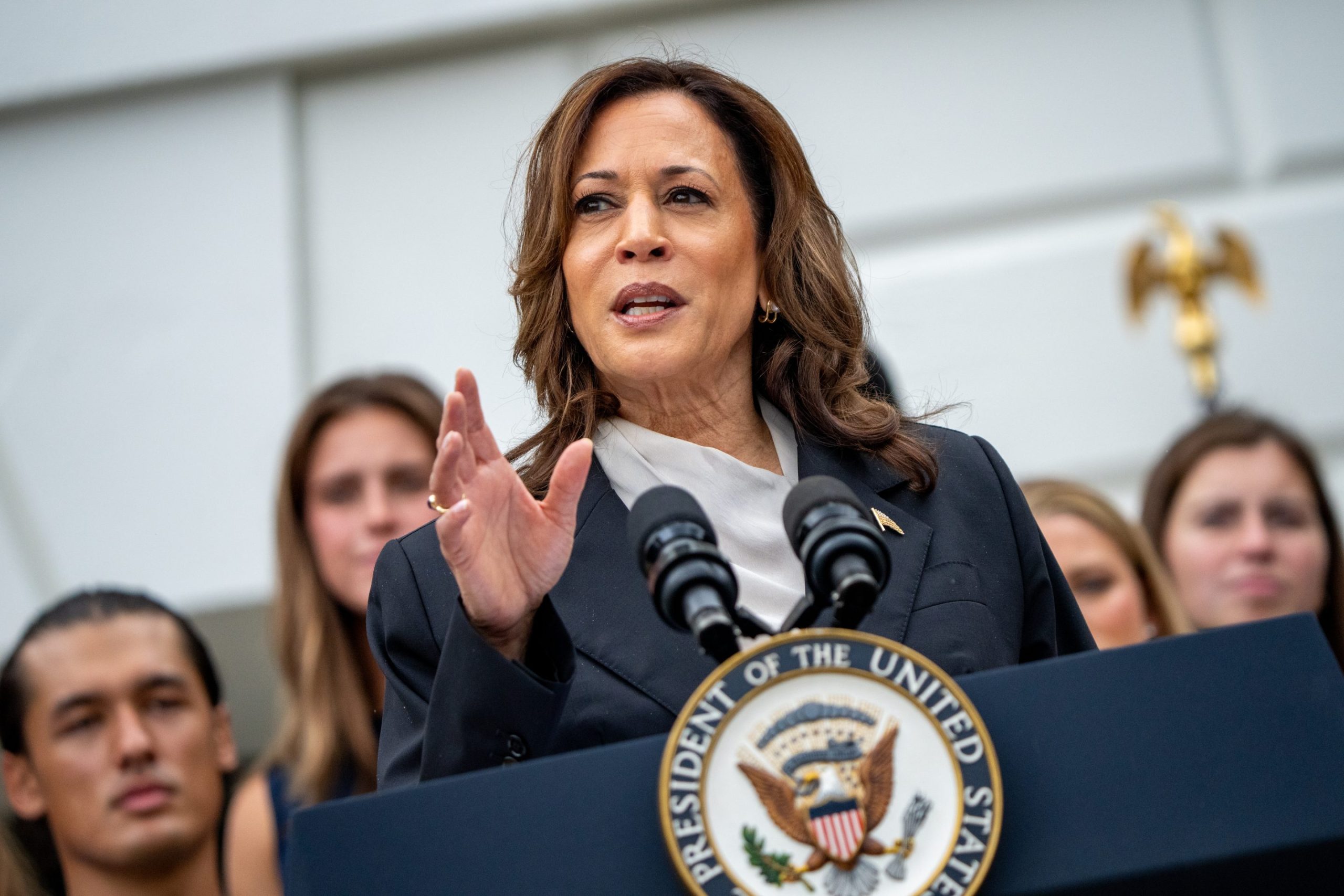Kamala Harris’s Position on Cryptocurrency: What It Means for the Future of Digital Assets
In an ever-evolving landscape of finance and technology, cryptocurrency has emerged as a major topic for political discussion. Politicians worldwide are either rallying for or against digital currencies. In the United States, where the conversation about crypto regulation is intensifying, Kamala Harris’s crypto stance is especially significant. As Vice President and a potential presidential candidate, her policies could shape the future of blockchain regulation and affect millions of crypto investors.
This article dives into Kamala Harris’s position on cryptocurrency, what it means for the industry, and how it might impact the crypto regulation landscape in the USA.
Kamala Harris’s Crypto Stance: A Silent but Crucial Factor
For much of her political career, Kamala Harris has remained relatively quiet about cryptocurrency. However, her position holds great weight due to her influence as Vice President and her likely participation in the 2024 presidential election. The question on many people’s minds is: What is Kamala Harris’s crypto stance?
While she hasn’t laid out a definitive policy, her crypto regulation stance may align with that of the Biden administration, which has taken steps toward stricter oversight of digital assets. Harris has supported measures that aim to regulate cryptocurrency markets, emphasizing consumer protection and the prevention of fraud(Blockhead)(COIN360).
Harris’s ties to Silicon Valley, home to many crypto innovators, add another layer of complexity. Her campaign has reportedly engaged with major crypto firms like Ripple and Coinbase, suggesting she might not be entirely opposed to the crypto industry’s growth(CryptoSlate). But with no clear statement on cryptocurrency policy, Harris is walking a fine line between consumer protection and fostering innovation.
Harris’s Cryptocurrency Policy: Balancing Innovation and Regulation
When discussing Harris’s cryptocurrency policy, one must consider her background in law enforcement as California’s Attorney General, where she was known for her tough stance on crime and regulation. This history implies that, should she take a firmer position on crypto, it will likely focus on robust consumer protection laws and increased market oversight.
- Consumer Protection: Harris has consistently emphasized the importance of protecting consumers from fraud, and this concern is central to her approach to cryptocurrency regulation. This could mean stricter rules that require exchanges to adhere to higher transparency and anti-fraud standards, preventing investors from falling victim to scams(COIN360).
- Market Stability: Beyond protecting individual investors, Harris is likely to advocate for regulations that promote market stability. This means reducing the extreme volatility that often characterizes cryptocurrency markets by requiring clearer disclosures from companies and regulating certain types of high-risk financial products(COIN360)(The Street).
- Innovation Encouragement: While regulation is crucial, it’s important not to stifle the innovation that crypto and blockchain technology represent. Harris’s ties to the tech industry might push her to strike a balance between regulation and encouraging blockchain innovation. By providing a regulatory framework that fosters innovation while minimizing risks, Harris could support the growth of the industry while ensuring public trust(Blockhead)(The Street).
Kamala Harris and Blockchain Regulation: What’s at Stake?
The global impact of blockchain and cryptocurrency means that any blockchain regulation proposed by Kamala Harris could have far-reaching consequences. With major economies worldwide stepping up regulatory efforts, the United States must take a leadership role. Harris’s crypto regulation stance is likely to be a deciding factor in how the U.S. approaches blockchain technology over the next decade.
Regulatory Challenges
- Decentralized Finance (DeFi): One area where Harris’s crypto regulation might come into play is DeFi, a rapidly growing sector of the crypto world. DeFi platforms operate without central authorities, offering financial services like lending and borrowing directly to users. Harris may propose stricter rules to ensure these platforms are secure and that users are not exposed to unnecessary risks(COIN360).
- Central Bank Digital Currencies (CBDCs): Another potential focus for Harris is the development of a U.S. central bank digital currency (CBDC). CBDCs are digital forms of fiat currency issued by central banks, and the Biden administration has shown interest in exploring this concept. Harris’s support for a CBDC would indicate a shift toward embracing government-backed digital currencies, which could compete with existing cryptocurrencies like Bitcoin(COIN360)(CryptoSlate).
Crypto Regulation in the USA: What to Expect in 2024
As we look ahead to 2024, crypto regulation in the USA is bound to take center stage, particularly if Kamala Harris runs for president. The Biden administration’s policies have focused on reigning in the Wild West-like atmosphere of crypto markets, and Harris is likely to follow a similar path if elected.
1. Harris’s Crypto Regulation Framework
Harris is expected to build on the Biden administration’s efforts to regulate cryptocurrencies while also balancing innovation. This could involve tightening Know Your Customer (KYC) and Anti-Money Laundering (AML) regulations to make it harder for bad actors to operate in crypto markets(Blockhead).
2. US Crypto Regulation 2024: Striking a Balance
In 2024, the United States may be on the brink of a regulatory overhaul. With US crypto regulation 2024 in the spotlight, Harris will have to address key concerns such as fostering financial innovation without stifling the growth of crypto startups. If done right, these regulations could provide the much-needed clarity that the crypto market has been calling for(The Street).
Harris and the Political Impact on Cryptocurrency Markets
Harris’s position on cryptocurrency has wider implications than just regulation; it affects market sentiment, investor confidence, and even electoral outcomes. The political impact on crypto has been profound, with political leaders’ statements and policies often triggering significant shifts in market prices.
1. How Political Decisions Influence Crypto Prices
For instance, a positive statement from Harris about crypto could boost market confidence, causing an increase in Bitcoin and other digital asset prices. On the flip side, if Harris announces stricter regulations or expresses skepticism, the market could see a sharp decline(CryptoSlate)(COIN360).
2. Crypto Voters and Harris’s Position
With millions of Americans invested in cryptocurrency, Harris’s stance could sway voters. Crypto investors are an influential voting bloc, and some analysts suggest that crypto policy could play a crucial role in the 2024 election. Harris crypto crackdown could be a dealbreaker for some voters, while others might appreciate her balanced approach to regulation(The Street).
What Harris’s Stance Means for the Future of Cryptocurrency
As the United States grapples with how to regulate digital assets, Kamala Harris’s crypto stance will be a key factor in shaping the future of blockchain technology and the cryptocurrency industry. While her past actions suggest a cautious approach to regulation, Harris’s ability to balance consumer protection with innovation could make her an important player in the global crypto landscape. Investors, developers, and enthusiasts alike should keep a close eye on her cryptocurrency policy as we approach 2024.
If you want to learn more about how regulatory frameworks impact emerging technologies like cryptocurrency, explore this in-depth analysis from Regent Studies.
For further insights on crypto regulations and their effects, check out this detailed article from CoinDesk.



